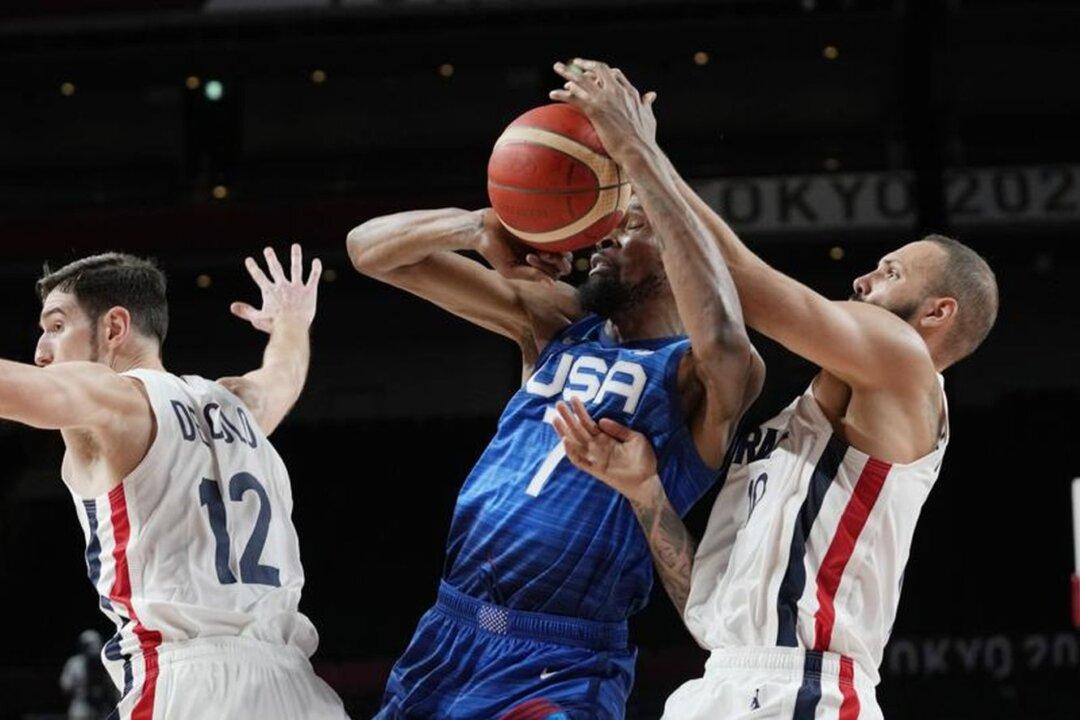The U.S. men’s basketball team, which hadn’t suffered a defeat at the Olympics since 2004, saw its 25-game winning streak at the Games come to an end on July 25 in an 83–76 group-stage loss to France.
Team USA’s biggest stars, the Brooklyn Nets’ Kevin Durant and Portland Trail Blazers’ Damian Lillard, both shot poorly and combined for 21 points, while Jrue Holiday led Team USA with 18 points, coming off an NBA Finals victory with the Milwaukee Bucks.





